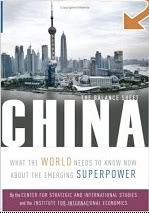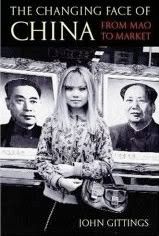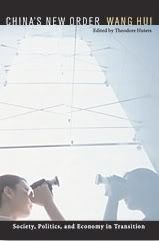China leads neoliberals
James Rose
The United States, with its hierarchy of moralizing, Republican, free-market acolytes, is generally considered the world's neoliberal capital. In some ways, it's easy to think of it as such. But history is a multi-limbed beast that moves inexorably across the landscape of humanity. You become transfixed by a single limb at your peril. If you want to see where neoliberalism is moving today, then look at China.
Neoliberalism, also known as neoclassicism, is generally considered to be characterized by the belief that markets should be open and uncluttered. They should move in the grip of Adam Smith's invisible hand - the collective wisdom supposedly generated by the market - and should not be influenced by non-market actors such as governments or civil groups. So, how does China, an authoritarian society, run by a highly meddlesome communist government, qualify to be considered neoliberal?
Well, the answer lies not in seeing neoliberalism as a philosophy so much as as a political tool.
In the United States and the United Kingdom, political leaders in the 1980s, namely Ronald Reagan and Margaret Thatcher, manipulated classical economics to break free of post-war market interventionism. They rightly assailed bloated bureaucracies and inefficient public services, and argued in favor of their replacement by free-market driven corporations, run by business professionals and controlled by full-time investors.
But these maneuvers, while valid to a degree, had a considerable political dimension. Sensing that the welfare society was simply becoming too expensive to maintain,because of population growth and raised standard of living expectations, some political leaders recognized that the cost had to be shifted onto the private sector. What they didn't understand, or perhaps didn't want to, was that the private sector was obsessed with externalizing its costs, ensuring society ended up not just paying higher prices, but was also obliged to bear environmental damage and loss of social cohesion as the corporate mentality had a freer reign across the domestic landscape, and across the world.
By the early 1990s, neoliberals recognized that things were going wrong. Language, particularly in advertising, was used to distract the growing number of critics, cover-ups became bigger and more common, the media were threatened, unions were pressured, civil groups were discredited and the rump of critics either ignored, patronized, or attacked. Most critics had to choose between co-option and figurative or actual death.
Sounds like mainland China doesn't it?
China's neoliberal ascendency seems to have got under many people's radar. But it hasn't been missed by foreign investors. Sixty percent of China's exports really are exports: the money goes offshore too. One Hong Kong economist recently noted that a Barbie doll made in China which costs the end-consumer about US$20 (HK$156), returns only about 35 US cents to China.
China's neoliberal journey is being managed largely by foreign businesses and Beijing is hardly putting up a fight to stop the trend. In Japan, old school suits have attempted to wrest back control from foreign investors. An example is the assault on IT entrepreneur Takefumi Horie, who is considered "too American" by his critics.
But the new boys in Beijing are keen to change their system to accommodate foreign businesses, not in giving up physical assets, but in making moves to change the style and shape of how business is done in China.
China's success as a neoliberal hub may explain much of the US coolness towards Hu Jintao on his recent visit to Washington.
While the Bush administration gave Hu a second-rate welcome, US business leaders were more or less falling at his feet.
This dynamic gives a hint of the concern the United States has that it may lose its position as the world's de facto investment target, especially given that the US dollar's performance is hugely reliant upon the foreign reserve policies of China.
Peter Kwong, professor of Asian American studies at the City University of New York, has written in a recent issue of the US journal Counterpunch, "China and the USA are two sides of the same coin, both disfigured by their respective neoliberal policies."
He calls for a global movement to counter neoliberalism and suggests both the current superpowers should be in the counterculture's sights.
The thing is, China may well be the real neoliberal superpower. In the United States, the population has the luxury of protesting and criticizing. Dysfunctional it may be, but the United States does run as a democracy. As such, counters to neoliberalism's sometimes anti-democratic manifestations are given more room to move and find traction than in China. The result is that neoliberalism is growing fast in China, even as it festers and stagnates or even rots away in the United States.
For the growing global anti-neoliberal movement, China today is wearing a sign on its back.
It says: "Kick me."
James Rose is editor of www.corporategovernance-asia.com
Monday, October 16, 2006.
Link




0 Comments:
Post a Comment
Subscribe to Post Comments [Atom]
<< Home